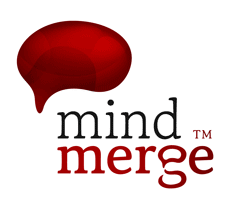Team Building Through Chemistry Workshop
What you'll learn
Understand the team development model
Identify team chemistry
Create vision and goals
Appreciate diversity
Manage conflict
Supervising Others Workshop
What you'll learn
Define requirements for particular tasks
Set expectations for your staff
Set SMART goals for yourself
Help your staff set SMART goals
Assign work and delegate appropriately
Provide effective, appropriate feedback to your staff
Manage your time more efficiently
Help your team resolve conflicts
Understand how to manage effectively in particular situations
Understand what a new supervisor needs to do to get started on the right path
Self-Leadership Workshop
What you'll learn
Understand what self-leadership is
Motivate yourself
Set goals
Reward yourself when positive things happen
Think positively
Performance Management Workshop
What you'll learn
Define performance management.
Understand how performance management works, and the tools to make it work.
Learn the three phases of project management and how to assess it.
Discuss effective goal-setting.
Learn how to give feedback on performance management.
Identify Kolb’s Learning Cycle.
Recognize the importance of motivation.
Develop a performance journal and performance plan.
Office Politics for Managers Workshop
What you'll learn
Understand the purpose and benefits of office politics.
Set boundaries and ground rules for new employees.
Learn to interact and influence among colleagues.
Learn how to manage various personality types in the office.
Determine how to gain support and effectively network.
Recognize how you are a part of a group and how you function.
Middle Manager Workshop
What you'll learn
Define management.
Understand ethics in the workplace.
Manage information and make decisions.
Be familiar with the control process.
Use organizational strategies to facilitate change.
Create structures and processes to manage teams.
Manage as a leader.
Manager Management Workshop
What you'll learn
Welcome and orientate new managers
Learn ways to successfully coach and mentor
Learn ways to measure and evaluate performance
Learn how to handle complications
Communicate between employees and their managers
Lean Six Sigma Course
What you'll learn
Define Lean, Six Sigma, and Lean Six Sigma
Identify the principles of Lean Six Sigma
Determine the phases of Six Sigma, using the DMAIC and DMADV frameworks
Recognize the principles of Lean Manufacturing
Successfully implement Lean Process and Six Sigma into business practices
Explore tools and techniques to drive change
Identify the business advantages of Lean Six Sigma
Lean Process And Six Sigma Workshop
What you'll learn
Develop a 360 degree view of Six Sigma and how it can be implemented in any organization.
Identify the fundamentals of lean manufacturing, lean enterprise, and lean principles.
Describe the key dimensions of quality – product features and freedom from deficiencies
Develop attributes and value according to the Kano Model
Understand how products and services that have the right features and are free from deficiencies can promote customer satisfaction and attract and retain new customers.
Describe what is required to regulate a process
Give examples of how poor quality affects operating expenses in the areas of appraisal, inspection costs, internal failure costs, and external failure costs
Using basic techniques such as DMAIC and how to identify Six Sigma Projects
Use specific criteria to evaluate a project
Discover root causes of a problem
Leadership & Influence Workshop
What you'll learn
Define “leadership”
Explain the Great Man Theory
Explain the Trait Theory
Understand Transformational Leadership
Understand the people you lead and how to adapt your leadership styles
Explain leading by Directing
Explain leading by Participating
Explain leading by Delegating
Kouzes and Posner
Conduct a personal inventory
Create an action plan
Establish personal goals
Knowledge Management Workshop
What you'll learn
Understand the basic concept of knowledge management (KM)
Identify the do’s and don’ts of KM
Identify the KM live cycle
Identify the new KM paradigm
Identify the KM models
Understand how to build a KM rational for your company
Understand how to customize KM definitions
Identify the steps to implementing KM in your organization
Identify tips for success
Understand the advanced topics in KM
Facilitation Skills Workshop
What you'll learn
Define facilitation and identify its purpose and benefits.
Clarify the role and focus of a facilitator.
Differentiate between process and content in the context of a group discussion.
Provide tips in choosing and preparing for facilitation.
Identify a facilitator’s role when managing groups in each of Tuckman and Jensen’s stages of group development: forming, storming, norming and performing.
Identify ways a facilitator can help a group reach a consensus: from encouraging participation to choosing a solution.
Provide guidelines in dealing with disruptions, dysfunctions and difficult people in groups.
Define what interventions are, when they are appropriate and how to implement them.
Employee Motivation Workshop
What you'll learn
Defining motivation, an employer’s role in it and how the employee can play a part
Identifying the importance of Employee Motivation
Identifying methods of Employee Motivation
Describing the theories which pertain to Employee Motivation – with particular reference to psychology
Identifying personality types and how they fit into a plan for Employee Motivation.
Setting clear and defined goals.
Identifying specific issues in the field, and addressing these issues and how to maintain this going forward.
Conducting Annual Employee Reviews Workshop
What you'll learn
Understand the process of conducting an annual review.
Determine the categories for an annual review.
Know the mistakes managers make during an annual review.
Understand the concept of pay for performance.
Know how to tie employee compensation to firm-wide returns.
Know the value of employee communication.
Gauge employees’ happiness.
Coaching and Mentoring Workshop
What you'll learn
Define coaching, mentoring and the GROW model.
Identify and set appropriate goals using the SMART technique of goal setting.
Identify the steps necessary in defining the current state or reality of your employee’s situation.
Identify the steps in developing a finalized plan or wrapping it up and getting your employee motivated to accomplish those plans.
Identify the benefits of building and fostering trust with your employee.
Identify the steps in giving effective feedback while maintaining trust.
Identify and overcoming common obstacles.
Identify when the coaching is at an end, and transition your employee to other growth opportunities.
Identify the difference between mentoring and coaching.

















